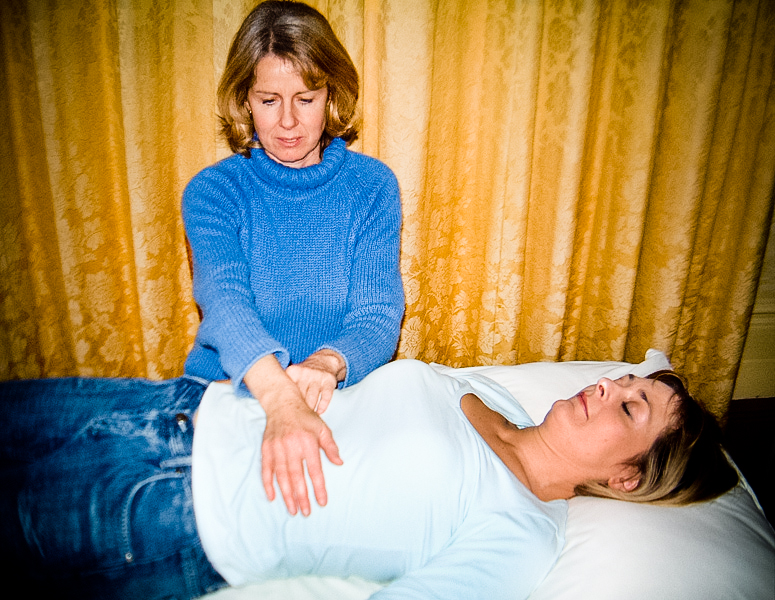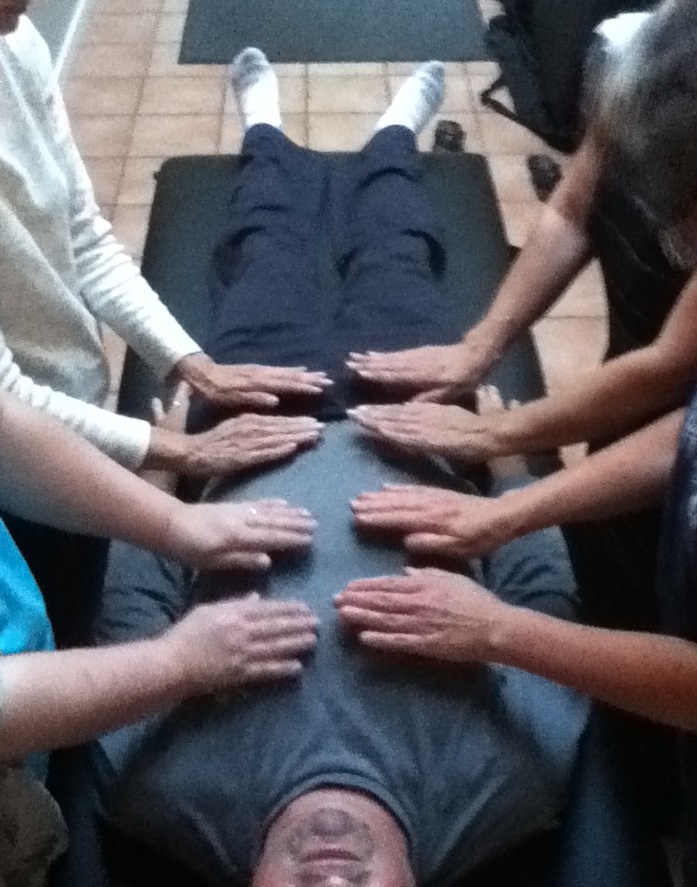|
Reiki
Reiki is a pseudoscientific form of energy healing, a type of alternative medicine originating in Japan. Reiki practitioners use a technique called ''palm healing'' or ''hands-on healing'' through which, according to practitioners, a " universal energy" is transferred through the palms of the practitioner to the client, to encourage emotional or physical healing. It is based on qi ("chi"), which practitioners say is a universal life force, although there is no empirical evidence that such a life force exists. Reiki is used as an illustrative example of pseudoscience in scholarly texts and academic journal articles. The marketing of reiki has been described as "fraudulent misrepresentation", and itself as a "nonsensical method", with a recommendation that the American government agency NCCAM should stop funding reiki research because it "has no substantiated health value and lacks a scientifically plausible rationale". Clinical research does not show reiki to be effective ... [...More Info...] [...Related Items...] OR: [Wikipedia] [Google] [Baidu] |
Energy Medicine
Energy medicine is a branch of alternative medicine based on a pseudo-scientific belief that healers can channel "healing energy" into patients and effect positive results. The field is defined by shared beliefs and practices relating to mysticism and esotericism in the wider alternative medicine sphere rather than any unified terminology, leading to terms such as energy healing, vibrational medicine, and similar terms being used synonymously. In most cases, no empirically measurable "energy" is involved: the term refers instead to so-called subtle energy. Practitioners may classify their practice as hands-on, hands-off, or distant, wherein the patient and healer are in different locations. Many approaches to energy healing exist: for example, "biofield energy healing", "spiritual healing", "contact healing", "distant healing", therapeutic touch, Reiki, and ''Qigong''. Reviews of the scientific literature on energy healing have concluded that no evidence supports its clin ... [...More Info...] [...Related Items...] OR: [Wikipedia] [Google] [Baidu] |
Energy (esotericism)
Proponents and practitioners of various esoteric forms of spirituality and alternative medicine refer to a variety of claimed experiences and phenomena as being due to "energy" or "force" that defy measurement or experimentation, and thus are distinct from uses of the term "energy" in science. Claims related to energy therapies are most often anecdotal, rather than being based on repeatable empirical evidence, thus not following the scientific method. There is no scientific evidence for the existence of such energy, and physics educators criticize the use of the term "energy" to describe ideas in esotericism and spirituality as unavoidably confusing. History The concept of esoteric energy has appeared in various cultures and spiritual traditions throughout history. Although interpretations differ, many traditions describe it as a vital force that animates living beings and permeates the cosmos. These ideas often overlap with religious, medical, and mystical frameworks, inf ... [...More Info...] [...Related Items...] OR: [Wikipedia] [Google] [Baidu] |
Alternative Medicine
Alternative medicine refers to practices that aim to achieve the healing effects of conventional medicine, but that typically lack biological plausibility, testability, repeatability, or supporting evidence of effectiveness. Such practices are generally not part of evidence-based medicine. Unlike modern medicine, which employs the scientific method to test plausible therapies by way of Guidelines for human subject research, responsible and ethical clinical trials, producing repeatable evidence of either effect or of no effect, alternative therapies reside outside of mainstream medicine and do not originate from using the scientific method, but instead rely on testimonials, anecdotes, religion, tradition, superstition, belief in supernatural "Energy (esotericism), energies", pseudoscience, fallacy, errors in reasoning, propaganda, fraud, or other unscientific sources. Frequently used terms for relevant practices are New Age medicine, wikt:pseudo-medicine, pseudo-medicine, unortho ... [...More Info...] [...Related Items...] OR: [Wikipedia] [Google] [Baidu] |
Vitalism
Vitalism is a belief that starts from the premise that "living organisms are fundamentally different from non-living entities because they contain some non-physical element or are governed by different principles than are inanimate things." Where vitalism explicitly invokes a vital principle, that element is often referred to as the "vital spark", "energy", "'' élan vital''" (coined by vitalist Henri Bergson), "vital force", or "''vis vitalis''", which some equate with the soul. In the 18th and 19th centuries, vitalism was discussed among biologists, between those who felt that the known mechanics of physics would eventually explain the difference between life and non-life and vitalists who argued that the processes of life could not be reduced to a mechanistic process. Vitalist biologists such as Johannes Reinke proposed testable hypotheses meant to show inadequacies with mechanistic explanations, but their experiments failed to provide support for vitalism. Biologists now ... [...More Info...] [...Related Items...] OR: [Wikipedia] [Google] [Baidu] |
National Council Against Health Fraud
The National Council Against Health Fraud (NCAHF) was a not-for-profit, US-based organization, that described itself as a "private nonprofit, voluntary health agency that focuses upon health misinformation, fraud, and quackery as public health problems." History According to archived website, the NCAHF evolved from three separate organizations. The Lehigh Valley Committee Against Health Fraud, Inc. (LVCAHF, now called Quackwatch) was founded in 1969 by Stephen Barrett and H. William Gross, Dental degree, D.D.S. in Allentown, Pennsylvania. The Southern California Council Against Health Fraud (SCCAHF) had its origin in 1976 at Loma Linda University with academic colleagues William T. Jarvis and Gordon Rick as co-founders. Thomas H. Jukes of University of California, Berkeley founded the third organization, an unnamed group in northern California. For a time between 1998 and 2000, the NCAHF operated under the name National Council for Reliable Health Information (NCRHI). The organ ... [...More Info...] [...Related Items...] OR: [Wikipedia] [Google] [Baidu] |
Well-being
Well-being is what is Intrinsic value (ethics), ultimately good for a person. Also called "welfare" and "quality of life", it is a measure of how well life is going for someone. It is a central goal of many individual and societal endeavors. Subjective well-being refers to how a person feels about and evaluates their life. Objective well-being encompasses factors that can be assessed from an external perspective, such as health, income, and security. Individual well-being concerns the quality of life of a particular person, whereas community well-being measures how well a group of people functions and thrives. Various types of well-being are categorized based on the domain of life to which they belong, such as physical, psychological, emotional, social, and economic well-being. Theories of well-being aim to identify the Essence, essential features of well-being. Hedonism argues that the balance of pleasure over pain is the only factor. Desire theories assert that the satisfact ... [...More Info...] [...Related Items...] OR: [Wikipedia] [Google] [Baidu] |
William T
William is a masculine given name of Germanic languages, Germanic origin. It became popular in England after the Norman Conquest, Norman conquest in 1066,All Things William"Meaning & Origin of the Name"/ref> and remained so throughout the Middle Ages and into the modern era. It is sometimes abbreviated "Wm." Shortened familiar versions in English include Will (given name), Will or Wil, Wills, Willy, Willie, Bill (given name), Bill, Billie (given name), Billie, and Billy (name), Billy. A common Irish people, Irish form is Liam. Scottish people, Scottish diminutives include Wull, Willie or Wullie (as in Oor Wullie). Female forms include Willa, Willemina, Wilma (given name), Wilma and Wilhelmina (given name), Wilhelmina. Etymology William is related to the German language, German given name ''Wilhelm''. Both ultimately descend from Proto-Germanic ''*Wiljahelmaz'', with a direct cognate also in the Old Norse name ''Vilhjalmr'' and a West Germanic borrowing into Medieval Latin ''Wil ... [...More Info...] [...Related Items...] OR: [Wikipedia] [Google] [Baidu] |
The National Council Against Health Fraud
The National Council Against Health Fraud (NCAHF) was a not-for-profit, US-based organization, that described itself as a "private nonprofit, voluntary health agency that focuses upon health misinformation, fraud, and quackery as public health problems." History According to archived website, the NCAHF evolved from three separate organizations. The Lehigh Valley Committee Against Health Fraud, Inc. (LVCAHF, now called Quackwatch) was founded in 1969 by Stephen Barrett and H. William Gross, D.D.S. in Allentown, Pennsylvania. The Southern California Council Against Health Fraud (SCCAHF) had its origin in 1976 at Loma Linda University with academic colleagues William T. Jarvis and Gordon Rick as co-founders. Thomas H. Jukes of University of California, Berkeley founded the third organization, an unnamed group in northern California. For a time between 1998 and 2000, the NCAHF operated under the name National Council for Reliable Health Information (NCRHI). The organization bec ... [...More Info...] [...Related Items...] OR: [Wikipedia] [Google] [Baidu] |
Placebo Effect
A placebo ( ) can be roughly defined as a sham medical treatment. Common placebos include inert tablets (like sugar pills), inert injections (like saline), sham surgery, and other procedures. Placebos are used in randomized clinical trials to test the efficacy of medical treatments. In a placebo-controlled trial, any change in the control group is known as the ''placebo response'', and the difference between this and the result of no treatment is the ''placebo effect''. Placebos in clinical trials should ideally be indistinguishable from so-called verum treatments under investigation, except for the latter's particular hypothesized medicinal effect. This is to shield test participants (with their consent) from knowing who is getting the placebo and who is getting the treatment under test, as patients' and clinicians' expectations of efficacy can influence results. The idea of a placebo effect was discussed in 18th century psychology, but became more prominent in the 20th ... [...More Info...] [...Related Items...] OR: [Wikipedia] [Google] [Baidu] |
Oxford University Press
Oxford University Press (OUP) is the publishing house of the University of Oxford. It is the largest university press in the world. Its first book was printed in Oxford in 1478, with the Press officially granted the legal right to print books by decree in 1586. It is the second-oldest university press after Cambridge University Press, which was founded in 1534. It is a department of the University of Oxford. It is governed by a group of 15 academics, the Delegates of the Press, appointed by the Vice Chancellor, vice-chancellor of the University of Oxford. The Delegates of the Press are led by the Secretary to the Delegates, who serves as OUP's chief executive and as its major representative on other university bodies. Oxford University Press has had a similar governance structure since the 17th century. The press is located on Walton Street, Oxford, Walton Street, Oxford, opposite Somerville College, Oxford, Somerville College, in the inner suburb of Jericho, Oxford, Jericho. ... [...More Info...] [...Related Items...] OR: [Wikipedia] [Google] [Baidu] |
Brian Dunning (author)
Brian Andrew Dunning (born 1965) is an American writer and producer who focuses on science and skepticism. He has hosted a weekly podcast, ''Skeptoid'', since 2006, and he is an author of a series of books on the subject of scientific skepticism, some of which are based on the podcast. ''Skeptoid'' has been the recipient of several podcast awards such as the Parsec Award. Dunning has also created the ''Skeptoid.org'' spin-off video series, ''inFact'', and ''The Feeding Tube'' both available on YouTube. Dunning has produced two educational films on the subject of critical thinking: ''Here Be Dragons'' in 2008, and ''Principles of Curiosity'' in 2017. Dunning co-founded Buylink, a business-to-business service provider, in 1996, and served at the company until 2002. He later became eBay's second-biggest affiliate marketer; he has since been convicted of wire fraud through a cookie stuffing scheme, for his company fraudulently obtaining between $200,000 and $400,000 from eBay. In ... [...More Info...] [...Related Items...] OR: [Wikipedia] [Google] [Baidu] |






